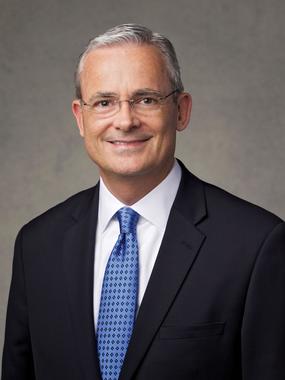This address was given at the Global Faith Leaders Summit in Abu Dhabi, United Arab Emirates, on Monday, November 6, 2023. See a news summary of the event.
 Download Photo
Download PhotoEsteemed faith leaders, beloved brothers and sisters,
I am honoured to stand before this distinguished gathering. At a time when the world is driven in many directions, torn by strife and political differences, we want to send a clear message: as people of faith, we are united to care for humankind and the world around us. Dialogue among those of the varying religious, cultural, and worldviews represented here today is key to solving the complex challenges that lie before us.
As we gather, our prayers are for those afflicted by natural disasters, armed conflicts, poverty, and the environmental challenges around the world today. The Church of Jesus Christ of Latter-day Saints, which I represent, recognizes our responsibilities for the earth. Russell M. Nelson, the President of the Church, who was unable to attend this summit, has said that “as beneficiaries of the divine Creation …We should care for the earth, be wise stewards over it, and preserve it for future generations.” 1
The earth, a sacred creation, is entrusted to us, and is meant to bless humankind. We are stewards, not owners, of this earth.
A colleague of mine recently said, “We have the power within us to not only maintain, but to be co-creators with God in beautifying and replenishing the earth. In doing so, we not only show our reverence and love for God, the Creator, but love for His greatest creation—each of us, humankind.” 2
My faith suggests that, if we are to preserve the earth in its bounty and beauty, a great part of this work will be done within the walls of our homes, within our families. If the family fails in this regard, other institutions will have a difficult, if not impossible, task to make amends. No other institution, not government, not the school, not the media, not religious faith communities, can fully compensate for failure to teach good earthly stewardship in the home. Environmental policies should incentivize the maintenance of strong families. Parents can teach children at a young age to be environmentally conscientious. Parents, assisted by faith communities, can teach and show that the responsible use of resources is a way of respecting all humankind, of caring for our brothers and sisters the world over.
We will do better as we think of the future for our children and grandchildren. We will focus not only on what is best for us but also what will be best for them and their children.
As we formulate and propose policies, let us be sure to integrate the family, its power and its vulnerability, into a central place in our discussion.
A unified effort—where governments, faith and community leaders, media, industry, scholars, and families work together—is the way to achieve the noble goal of revitalizing the earth and the greater human family. May we accept this as a sacred charge.
Thank you for your attention.
2. Bishop L. Todd Budge, Oct 5, 2022, UVU UN Conference https://newsroom.churchofjesuschrist.org/article/bishop-l-todd-budge-sacred-duty-care-for-earth